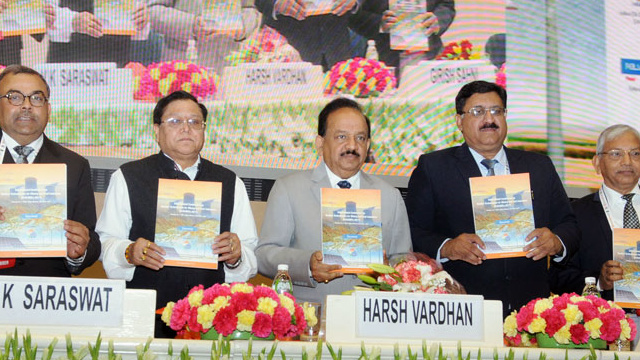Union Minster for Environment Harsh Vardhan recently announced that curbing climate change and environmental pollution will now become his ministry’s top most priority. But can legislation’s and large scale measures alone make the difference when individuals are unwilling to alter lifestyle practices?
Mona Bakshi works with an environment protection group – based in Mizoram.
The environment ministry has asserted recently that it plans to and is working towards a mechanism to curb down air pollution and help lower its levels in around 100 non-attainment cities by 50 per cent in the next five years under the National Clean Air Programme. We must note here the fact that by non-attainment cities we are referring to those cities that are considered to have air quality that is far worse than what is permissible in the National Ambient Air Quality Standards. In order to deal with the several challenges posed by climate change, the ministry has planned an initiative through which it plans to plant 1,000 crore saplings from 2021 to 2030.

The Ministry is recorded to have said that the air pollution levels in some of these cities could be tremendously rising if we did not take adequate steps in the right direction. The plan to plant saplings in such large numbers is being seen as a welcome measure in this regard. This initiative to bring down pollution levels in the 50 most polluted cities will include a series of steps such as setting up a more extensive monitoring system, initiating a range of research and studies on how pollution can have adverse impact on health, setting up of air information systems, air quality forecasting systems, spreading quality awareness among members of the society.
The NCAP also wishes to start collaborative and participatory programs that will involve various institutions, state bodies, non-governmental organizations and individuals to look into the matter and collectively work towards a cleaner and healthier ecosystem. The plans made by the government to deal with the adverse effects of air pollution and to bring together on a collective platform a range of players, are a positive step indeed in the direction of cleaner and more sustainable environments. However, what must also be realized is the fact that just legislations and policies no matter how sound and focused will not be enough to altogether improve the situation.
The cooperation of individuals, the commitment to make lifestyle changes in terms of lowering consumption of non-renewable resources, techno gadgets, vehicles or reducing per individual waste creation are important factors that have to be considered equally important. Unless we realize how badly our lives as individuals are being effected in the process, unless we manage to take account of our own small or large contributions towards growing pollution we cannot expect that just policy implementations will make all the difference.
While the Ministry claims that from now on climate change will becomes its priority and it will engage in extensive projects to improve the quality of air- it will certainly require the collaboration and joint effort of a series of communities, societies and individuals who are collectively part of the ecosystem.
If you Liked the story? We believe that if individuals like you come forward and SUPPORT THIS ENDEAVOR can make the magazine self-reliant in a very innovative way.














